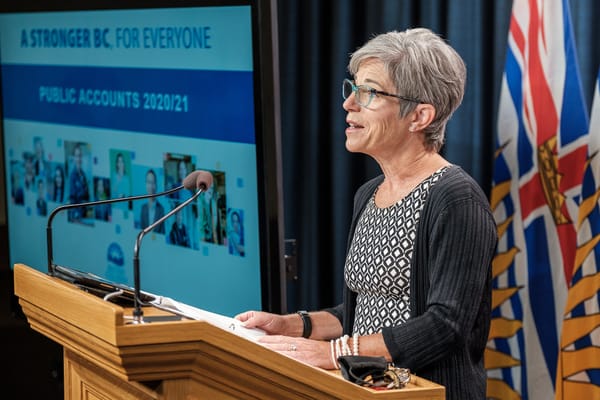Fifty years ago this coming Monday, recommendations from the most important study on the condition of women in Canada landed in the House of Commons. The Royal Commission on the Status of Women in Canada’s final report, written after three years of work and based on more than 1,000 letters and 468 briefs, would trigger a new wave of feminist organizing in Canada.
The Commission’s 167 recommendations were broad-ranging, and sought to improve women’s participation in the economy and society. The report was divided into the following sections: education, women and the family, childcare allowances, poverty, participation of women in public life, immigration and citizenship, and law and criminal offenders. It ended by calling on all levels of government to create committees to monitor how the implementation of the recommendations was going and report their progress.
These committees gave formal structures for feminists through which to engage in political action. Fueled by Opportunities for Youth grants given by Prime Minister Pierre Elliot Trudeau’s government, feminists created childcare centres, shelters and other services for women, while they also got involved in Status of Women committees and formalized activism to take aim directly at government.
The Commission captured an incredible moment where women’s role in Canadian society started to shift. They asserted their rights previously denied to them based on gender alone. But many of the biggest issues raised by the Commission were never implemented, and some of those that were have since been constantly attacked by right-wing politicians.
For example, several recommendations called on all levels of government to enact legislation enforcing pay equity. Yet pay equity remains a problem in Canada, with important wage gaps separating women from men, white women from racialized women and racialized workers from white workers. There are also large gaps between Indigenous and non-Indigenous women, and disabled and able-bodied women. Canadians still don’t have a solution for pay equity.
In November this year, the federal government announced that their proposed Pay Equity Regulations were published in the Canada Gazette, one step closer to finally being implemented. The government intends for the regulations to be formally in force some time in late 2021.
They will give federally-regulated employers three years to develop their pay equity plans. If everything goes according to schedule, that means employers in natural resources industries, banks, telecommunications and the federal government will have to abide by pay equity legislation in 2024, 54 years after the commission made this recommendation.
The Commission also called for sex education lessons to be given to all students, from kindergarten to secondary school, with kids of all genders being taught in the same classroom. This recommendation has been under steady threat for years.
In 2009, the Alberta government passed Bill 44, which forced schools to contact parents before their kids would take part in sexual education classes. This was a step back, because the report’s recommendation was intended to bring public health perspectives to young people to counterbalance bad, or no, information received at home.
Ontario Premier Doug Ford’s government introduced similar legislation in 2018 that insisted boards develop policies to allow parents to pull their children from sex education classes based on religious opposition.
In January this year, United Conservative Party education minister Adriana LaGrange promised to undertake a curriculum review. City News reported that she said “subjects such as sex education and world events like the Holocaust would be taught at ‘age-appropriate’ times, though no specific details were given.”
The Commission also called for major improvements to income supplement programs, including for all single parents to be given a guaranteed annual income. This has never been realized, although it is still of tremendous need.
It also called for the Guaranteed Income Supplement of Old-Age Security (GIS) to be geared to the cost of living, so that older Canadians don’t have to live in poverty — this remains unfulfilled. Elderly poverty in Canada has been rising, and these programs haven’t kept pace with inflation, contrary to the recommendation, As of March, the maximum amount someone can receive from GIS per month is $916.38.
But perhaps the most significant recommendation that has never been realized is for Canada to create a national daycare system, with fees geared to income. Despite many attempts, no government save Quebec has managed to create such a childcare system.
Monday’s economic update revealed that the Liberals’ first step to make a system is to create an advisory group, which suggests today’s 14 year olds will be lucky if a system is established in time to welcome their second child.
Five decades is a long time to wait for change. Feminists have to see patriarchy as being part of a colonial project, acknowledging that women’s standing in Canada can’t be improved if movements are divorced from struggles for racial justice and decolonization. The recommendations from the Commission need to be expanded in intersectional ways.
The best way we can honour this work is to use this upcoming anniversary to re-commit ourselves to fulfilling these demands, and fight for much more.








Member discussion